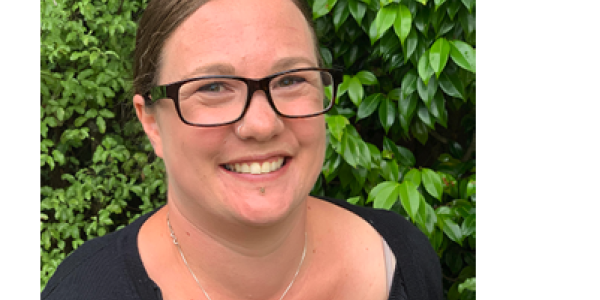NAEYC Member Spotlight: Ali Porteous

You are here
Ali Porteous
Kaiarahi (Team leader)
Ngaio, Wellington, New Zealand
For Ali Porteous, the foundation for successful early learning is the relationship between an early childhood educator and a child. This is at the heart of her day-to-day interactions, both as a kaiarahi (team leader) for a toddler room in New Zealand and as part of an adult education team.
Beginning her education career as a substitute teacher, Ali soon made the decision to study early childhood. “I began to realize that the world of early childhood is complex,” she says.
After finishing her studies and giving birth to her first child, Ali wanted to move to a center that was both child-led and nature-based. Now the kaiarahi of the toddler room at Childspace in Ngaio, Wellington, New Zealand, Ali gets to work in this type of center every day.
“My day to day is all about playing and learning alongside the children,” Ali explains. “Every day is different depending on what the children are interested in.” She works with a team of three kaiako (teachers) and up to 15 tamariki (children) who spend a large part of the day engaging in free play. “We don’t follow a rigid schedule,” Ali says. “Rather, we just have approximate times that things happen—such as kai (food) times—and follow the children’s lead as much as possible.”
The center provides outside playscapes with a focus on using natural materials like wood, shells, and pinecones. Children have access to the outdoors for the majority of the day and, Ali says, “In any kind of weather, as we believe that there is no such thing as bad weather—just inappropriate clothing!” The positive outcomes of emboldening children to interact with nature have led to some of Ali’s favorite moments at the center: “You see the most amazing feats of courage take place on a daily basis. When children are in an encouraging environment where they feel safe to explore, they really can achieve anything they set their minds to.”
Ali stresses the need for spending time in nature not only for a child’s physical, emotional, spiritual, and mental well-being, but also for equipping them to be lifelong ambassadors for the natural world. She encourages other teachers and caregivers to bring nature (plants, seashells, fresh air) into the classroom or center as much as possible. “How will children learn to love and protect nature if they never spend any time in it?” she asks.
Following the children’s lead both in the classroom and out is one way that Ali and her team create supportive, quality relationships with children: “We believe that the way in which we treat, handle, and care for a child will determine the way in which they see the world around them.”
They also practice a key kaiako system in which each child who starts at Childspace is allocated a pair of kaiako who take a special interest in that child and settle them into the center. The kaiako also act as a point of contact for the whānau (family). Establishing these secure and positive relationships early on is a priority for Ali’s team.
“It is the quality of these relationships that will dictate if a child has an amazing experience at your center,” Ali says.
As part of Childspace’s adult education team, Ali facilitates courses on peaceful curriculum, placing respect and relationships at the heart of their work. “It is the quality of these relationships that will dictate if a child has an amazing experience at your center,” Ali says. “You can have the most amazing learning experiences set up for a child, but if they don’t feel safe, they will never reach their highest potential.”
To learn more about Childspace, visit www.childspace.co.nz/.
Visit naeyc.org/get-involved/membership/spotlight for more information on how to:
Share your Story Answer a few questions to tell us about your work with young children and what NAEYC membership means to you.
Nominate a Member Share why an NAEYC member you know should be recognized for his or her work with young children.